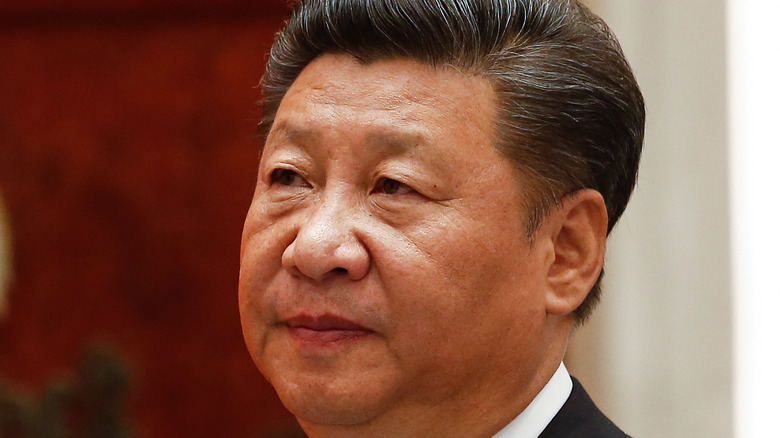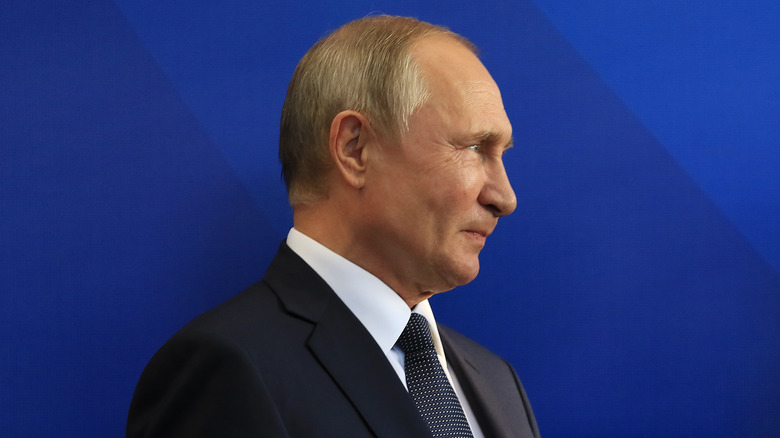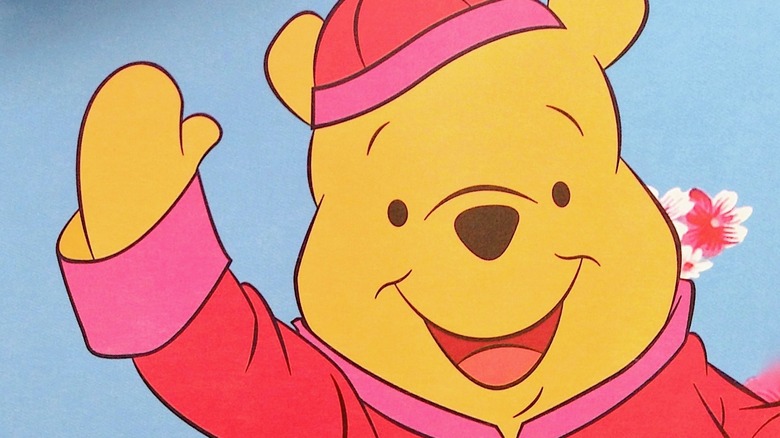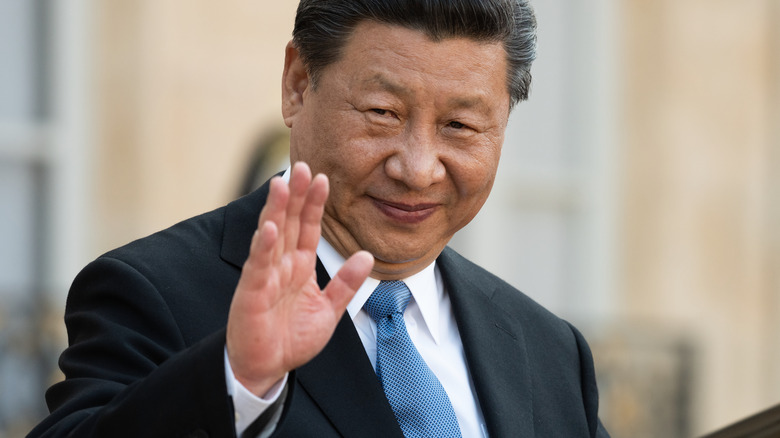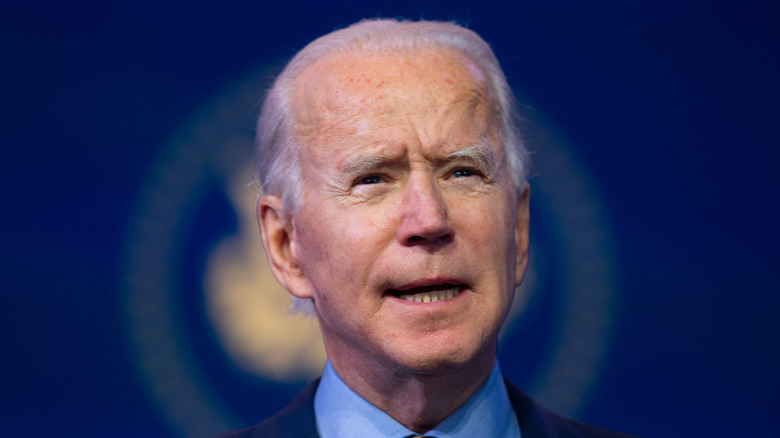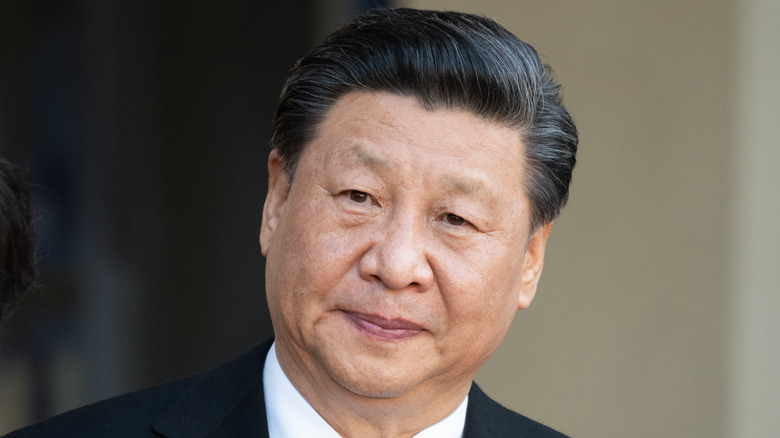The Biggest Mistakes People Make When Meeting China's Leader
There's no question that at this point, America's primary competition on the global stage has shifted from Russia to China. Throughout both the Trump and Biden administrations, and in the midst of the COVID-19 pandemic, the relationship between China and the United States — one democratic and the other communist — has seemingly only worsened, per the BBC. Leading China currently is Xi Jinping, and under his administration, some have criticized the country's human rights record, according to DW.
So much so, the U.S. recently announced there would be a diplomatic boycott of the 2021 Winter Olympics, per CNBC. The last full U.S. boycott of the Olympics came in 1980, according to Forbes. International relations always require careful consideration of cultural differences. Nowhere is this more true than when dealing with an authoritarian regime like the one China is currently experiencing. Here are just a few of the biggest mistakes people make when meeting China's leader.
Criticizing Russia
Whenever anyone meets China's leader Xi Jinping, it's never a good idea to mention Russia in a negative context. That's because Jinping and Russian leader Vladimir Putin have recently strengthened the alliance between the two countries. According to VOA, this cooperation has taken the form of combined military operations, as well as diplomatic statements issued jointly, among other examples.
Russia has an interest in China for oil and gas exports, and China shares Russia's disdain for the West, including the United States, accusing many international organizations of putting undue economic pressure on both China and Russia, as well as several other smaller countries in the area. This alliance between two of the world's superpowers makes diplomatic relations in that area of the world very fraught indeed, as Western countries hope to prevent a military conflict with one or both. In response, the United States is strengthening its own diplomatic relationship with countries like Japan, Australia, and South Korea, per CNN.
Mentioning Winnie the Pooh
Reportedly, some of China's most egregious human right violations involve censorship and the freedom of expression for citizens. According to The Guardian, it was common for Chinese citizens to make fun of their leader's mild resemblance to the beloved character from children's literature, Winnie the Pooh. These comparisons took many shapes, but most were based on the internet, including one meme paralleling an image of then-President Barack Obama walking side-by-side with Xi Jinping, next to a picture of Winnie the Pooh walking alongside his friend Tigger.
Another popular meme from that time compared Xinping shaking hands with Japanese prime minister Shinzo Abe and a picture of Eeyore and Winnie the Pooh, also shaking hands. In response to this trend, China banned the release of "Christopher Robin," a movie based on the stories of AA Milne. Chinese officials even cut off access to HBO when comedian John Oliver mentioned the controversy. For these reasons, whenever meeting with the Chinese leader, it's best to leave Children's literature out of the discussion.
Telling him what to do in the South China Sea
According to Reuters, the South China Sea has become a flashpoint for tension between China and the West. The United States has treaties with the Philippines, and that recent "water cannon" attacks on Philippine boats and vessels could amount to a violation of those treaties, leading to a military conflict, according to the U.S. These incidents also came a few days after a lengthy meeting between Xi Jinping and American President Joe Biden, in which both leaders pledged to do whatever possible to minimize armed tension between their two countries.
According to Global Conflict Tracker from the Council on Foreign Relations, though, China claims dominion over the South China Sea, as well as all the oil and land contained within. Hopefully nothing Biden said during his meeting with the Chinese leader provoked China's aggressive actions in the area, which, as one U.S. government official put it, are "the latest in a series of Beijing-directed actions meant to intimidate and provoke other nations, undermining peace and security in the region as well as the rules-based international order." This goes to show that, in this area of the world at least, Xi Jinping seemingly does what he wants, and it's a mistake to tell him otherwise.
Inviting him to the COP26 summit
According to NPR, the recent COP26 summit saw China and the United States enter into an agreement to cut each country's carbon emissions as means to further minimize climate change. Xi Jinping, however, was conspicuously absent from the summit, a move that President Biden called "a big mistake," per The Week. According to U.S. News, the Chinese leader wasn't the only global power player to be MIA from the meeting. China's close ally, Russia, also skipped the event. To his credit, Jinping did submit a written statement, and speculation about why he chose not to attend in person include ongoing travel restrictions due to the pandemic, as well as energy and environmental crises in his own country, according to Quartz.
"I think — presumptuous of me to talk for another leader — but the fact that China is trying to assert, understandably, a new role in the world as a world leader, not showing up? C'mon," Biden said of Russia and Jinping's decision to not attend the summit, per U.S. News. "The single most important thing that's gotten the attention of the world is climate. ... It just is a gigantic issue. They've walked away. How do you do that and claim to be able to have any leadership now? Same with Russia."
Talking about China's response to COVID-19
China's quick and efficient containment of the COVID-19 within its own borders has received praise from sources like The Lancet, among many others. Under the leadership of Xi Jinping, though, China's leadership in the early days of the crisis has received far less favorable reviews, with many experts claiming the country could have acted more quickly to contain the virus, per Aljazeera.
According to a report issued by a panel of experts led by one-time New Zealand Prime Minister Helen Clark, "What is clear to the panel is that public health measures could have been applied more forcefully by local and national health authorities in China in January," and the country could have been more transparent early on in the pandemic. According to The Washington Post, Xingping disagrees with this assessment, saying in video remarks, "With solidarity and resilience, we wrote the epic of our fight against the pandemic."
International diplomacy is like a minefield. One false step and it all could blow up. Avoiding any of these mistakes people make when meeting China's current leader, Xi Jingping, could hopefully make the relationship between China and the rest of the world remain as peaceful as possible for many years to come.
